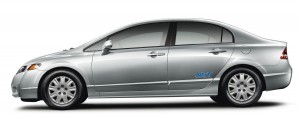The U.S. Environmental Protection Agency (EPA) is proposing to make it easier for manufacturers to gain approval to sell fuel conversions.
Such conversion allow vehicles to run on alternative fuels, which appeal to some consumers concerned about energy security, fuel costs, or emissions.
EPA is currently interested in encouraging innovation and spurring conversions that use what it calls “clean energy” technologies.
To accomplish this, EPA is proposing to revise the regulatory criteria to make it easier for gaining an exemption from the Clean Air Act prohibition against tampering for the conversion of vehicles and engines to operate on an alternative fuel.
Under existing EPA regulations, an exemption from the tampering prohibition may only be granted to vehicles and engines covered by a “certificate of conformity.” The proposed revisions would create additional compliance options beyond certification that would protect manufacturers of clean alternative fuel conversion systems against a tampering violation.
The new options would alleviate some of the economic and procedural impediments to alternative fuel conversions while maintaining environmental safeguards to ensure that acceptable emission levels from converted vehicles are sustained, according to EPA.
Under the proposed approach, compliance requirements would vary based on age of the vehicle or engine being converted. EPA said it found that the compliance process for older vehicles and engines could be streamlined, while maintaining environmental safeguards. As opposed to a one-size fits all approach, requirements would now be based on whether a vehicle or engine is new, intermediate-age, or outside its expected useful life.
Conversion systems alter an existing vehicle or engine to enable it to run on a different type of fuel, such as switching a car to run on compressed natural gas. While properly engineered conversion systems can reduce or at least not increase emissions, poorly designed systems can lead to more pollution. EPA reminds consumers only to use systems that have EPA approval.
EPA will accept public comments on this proposal until July 23, 2010. More information: http://www.epa.gov/otaq/consumer/fuels/altfuels/altfuels.htm


I can’t wait to see what the EPA defines as an engine that is “Ouside its expcted useful life”. Another set of regs full of good intentions I’m sure but let’s watch and see how reaslistic and “real world” their policies end up being. This process will be fun to watch.